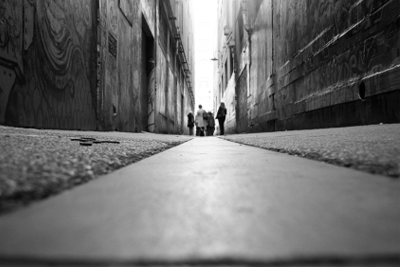Race, religion, sex, age - but what about homelessness?
 Joseph* woke one morning outside his local bakery. This was his home for the night. He got his things together and went to order a bite to eat. He had the money to pay for it, but was told to move on by the owner.
Joseph* woke one morning outside his local bakery. This was his home for the night. He got his things together and went to order a bite to eat. He had the money to pay for it, but was told to move on by the owner. It’s generally understood that it’s against the law to discriminate against someone on the basis of their race, sex, religion, age and disability. But what about social status?
In our work we constantly meet people who have been discriminated against because they look “homeless”, they’re on Centrelink or they receive assistance from welfare agencies.
It’s not illegal to discriminate against someone because they’re homeless. For many in our community the impact of this discrimination is enormous.
Take Emily*. Homeless, and a victim of domestic violence, she was told by a landlord that they had accommodation for her. When the landlord realised that Emily had been homeless and was receiving assistance from a welfare agency, they informed her that there had been an error and that there were no vacancies.
Census data shows that there are 20,500 people experiencing homelessness each night in Victoria. That’s a lot of people facing discrimination every day.
Being homeless brings with it numerous other hardships, including difficulties accessing housing, education, transport, employment and healthcare.
One person we spoke with recalled being turned away by hospital security because they assumed he was looking for drugs. In fact, he never got to see the triage nurse. He was seeking treatment for a broken wrist.
These types of discrimination exclude people from the things many of us take for granted. Being unable to access basic services further marginalises people and makes it more difficult for them to reintegrate into the community.
It’s time that someone’s social status, or “homelessness”, be protected like their race, sex and religion is.
We continue to work with government to ensure that being homeless is not grounds for discrimination.
If we can achieve this, people like Joseph will be able to buy breakfast at his local bakery, Emily will be able to find a place to call home and those who need medical treatment will receive it because they need it – not denied it because of their appearance or source of income.
To support the work we do to to improve the law join us on the walk or sponsor a walker.
*Not their real names
